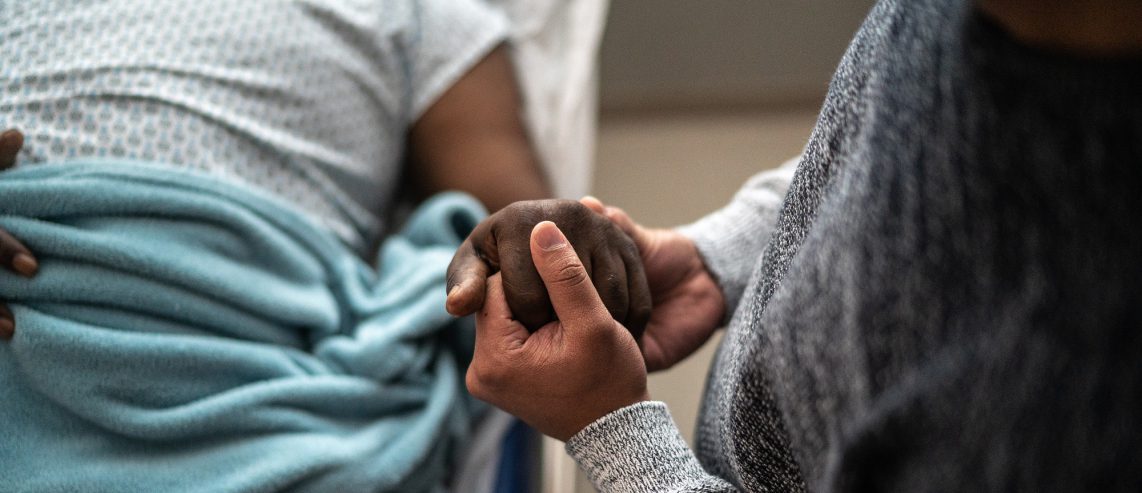Your doctor recommended surgery to treat your cancer. As part of your preparation, you’re anticipating the recovery period.
Cancer surgeries vary widely — from small incisions to major procedures. Your recovery journey will be unique to you. So it’s tough to provide hard and fast rules for recovering from cancer surgery.
You may have an incision that needs to heal, or you may have tubes and catheters while you’re in the hospital. You may go home the same day or within a few days. Or you may remain in the hospital for a week or two.
No matter what surgery you have, a few elements remain the same during recovery.
Get Moving as Soon as Possible
If you stay still for too long after surgery, you risk developing blood clots or other health problems. Your care team will let you know when it’s safe for you to get up and move around your room or walk down the halls. You also may need to do specific exercises to prevent side effects. When you return home, you’ll want to remain active as well. Ask your doctor what level of activity you can do and how you can increase as you feel better.
Never Miss a Beat!
Subscribe to Our HealthBeat Newsletter!
Thank you for subscribing!
You can now select the specific newsletters you'd like to receive.
You are already subscribed.
Subscribe to more newsletters in our email preference center.
Sorry, an error occurred. Please try again later.
Get Healthy Tips Sent to Your Phone!
Ask Questions
It’s normal to feel overwhelmed right after surgery. Even if you have a few days in the hospital, you may not fully absorb what your care team tells you. Ask questions in the hospital. Have a friend or family member ask questions and take notes. Call your doctor from home and ask more if you need to. Be sure you know how to change your wound dressings, what you should eat, and how to handle pain.
Watch for Signs of Infection
Be aware of signs of infection when recovering from cancer surgery. These include:
- Fever.
- Chills.
- Bleeding or pus coming from an incision.
- Swelling around the incision.
- Sudden severe pain.
Call your doctor right away or seek emergency care if you have any of these signs.
Engage Your Support Team
Doctors, nurses, and supportive care members are there to help you with the mental, physical, emotional, and spiritual effects of cancer surgery. You also can ask for help from family and friends. Asking for help can be really hard for some people.
It helps to build your support team before surgery. That way everyone’s ready to jump into action when you’re back home.
Set Reasonable Expectations for Yourself
You may read about expected recovery times online. But that doesn’t mean your experience will be the same. It’s normal to feel bad right after surgery. It’s normal to feel emotional if you’ve had a surgery that affects your daily bodily functions.
It’s good to cut yourself some slack and work with how you actually feel. You will recover in your own time, at your own pace. However, if you feel you have signs of depression or fear that makes you feel paralyzed, call your doctor.
When recovering from cancer surgery, focus on taking care of yourself. Adopt healthy habits or continue ones you adopted before surgery. Follow your doctor’s guidelines for how to care for yourself at home. Take the time you need to regain your strength.
Sources
American Cancer Society. Getting Ready for and Recovering from Cancer Surgery. https://www.cancer.org/treatment/treatments-and-side-effects/treatment-types/surgery/recovering-from-cancer-surgery.html
About UPMC Hillman Cancer Center
When you are facing cancer, you need the best care possible. UPMC Hillman Cancer Center provides world-class cancer care, from diagnosis to treatment, to help you in your cancer battle. We are the only comprehensive cancer center in our region, as designated by the National Cancer Institute. We have more than 70 locations throughout Pennsylvania, Ohio, and New York, with more than 200 oncologists – making it easier for you to find world-class care close to home. Our internationally renowned research team is striving to find new advances in prevention, detection, and treatment. Most of all, we are here for you. Our patient-first approach aims to provide you and your loved ones the care and support you need. To find a provider near you, visit our website.
